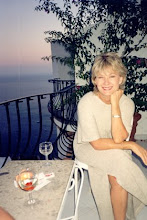TEMPEST IN THE STEMWARE: WINE JUDGES ARE NOT CONSISTENT
Recently, the LAT ran an article “exposing” that wine judges at the Los Angeles International Wine & Spirits Competition, held annually at the LA County Fairgrounds (one of the largest wine competitions in the state), judged the same wine three times, three different ways. Mon Dieu!
Exactly what was the “call to action” in releasing the results of this blind taste test? To instill confidence in consumers regarding the wines that are awarded medals? To boost the trust factor that a medal bestows? To encourage winemakers, worldwide, to enter more competitions? I think none of the above, but rather to create a tabloid style headline that with all its sound and fury, harrumphs around and then is heard no more.
Judges who participate in wine competitions (and both the author of the blind test and the LAT writer have judged at the competition in question) come from many rows of wine life. There are journalists to be sure, winemakers, growers, educators, Sommeliers, Master Sommeliers, Masters of Wine, restaurateurs, entrepreneurs, mixologists, bon vivants, merchants, sales, public relations and advertising executives, professional spokespersons and other job descriptions within or aligned with the industry. Sounds kind of similar to what you find in any awards judging group. Think of the upcoming Academy Awards nominations, for their version of a Gold Medal product. The “judges” are actors, directors, producers. You may see a film once and not be moved at all, seeing the same film a second time; you suddenly find nuances and scenes that change your mind. You get the picture.
Not all of the judges are rigorously trained to taste all of the nuances in a blind tasting. Nor should they be. The variety of judges is there to offer an educated “field blend” of opinions to help us consumers toward a taste and value experience.
Each judge comes to a particular glass of wine with a discipline and sometimes an axe. They may be looking for specific character of a particular grape; whether or not they actually even like this grape; an old world or new world style; or a glass that will sell for $6.00 in their establishment, a bottle that will fetch attention on their “shelf talker,” and so on. In addition to this, what did the judges have for breakfast? Or, do they have an allergy/nasal condition as they taste; or perhaps in a grumpy or happy mood and what about the state of their emotional relationships?
Some have said that the reason the blind wine was judged differently is due to the fatigue that is inherent in a large wine competition, or to the panel or committee style of judging. If we are to suspect “taste fatigue” from a panel of judges then what can we think about the singular sensation of Robert M. Parker, Jr’s palate, who purportedly has tasted many hundreds of wines in a day.
For full disclosure, I have judged for four years at the Los Angeles Wine & Spirits Competition, as well as others. In my experience, judges take their job seriously, sometimes becoming passionately gruff with each other when arguing for/against points.
Many of us have had the experience of tasting a wine while on holiday and having our senses go through the roof. We buy that same bottle, bring it home and open it…..and it just isn’t the same. Or, we buy several bottles and wonder why they don’t all taste the same. We have the right to have a different opinion from one bottle to the next.
Variations are inherent in any human endeavor. And, perhaps there are methodologies to tighten up the judging process. But, unless we want computers to determine medal winners for taste, any product being judged for an award is subject to the “subjective.”
In the words of Paul McCartney, “Let it Be.”
-Stacie Hunt
Certified AIS Sommelier

